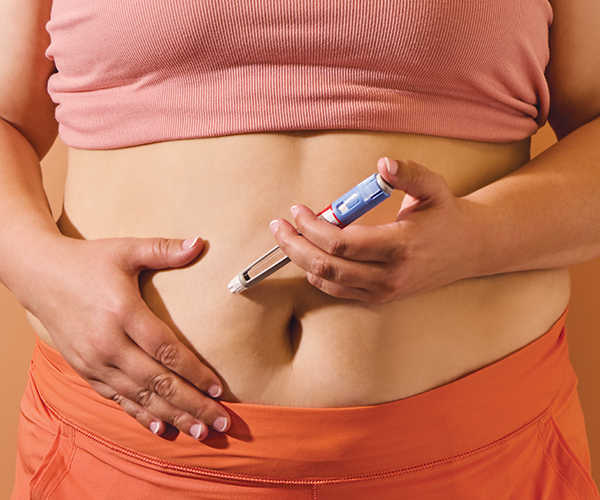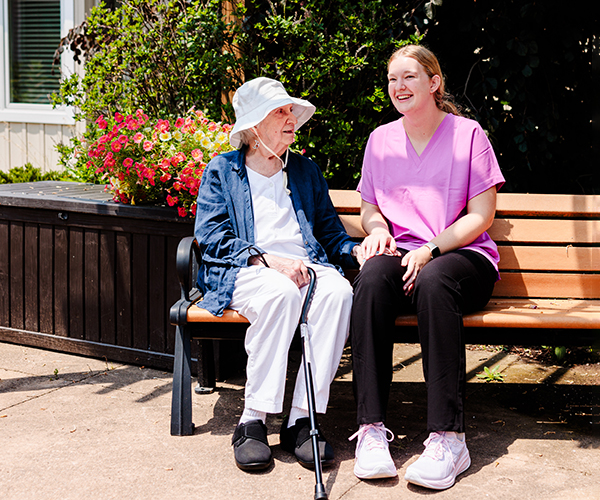|
Resources Web sites: • National Center for Complementary and Alternative Medicine, nccam.nih.gov/health/hrt-studies/index.htm • U.S. Food and Drug Administration, www.fda.gov/womens/menopause/default.htm • National Institutes of Health, www.nih.gov/PHTindex.htm • National Women's Health Information Center, www.4women.gov • National Women's Health Resource Center, www.healthywomen.org • North American Menopause Society, www.menopause.org • Women's Health Initiative (NIH), www.nhlbi.nih.gov/whi Books: • "Dr. Susan Love's Menopause and Hormone Book: Making Informed Choices" (2003), Susan Love, M.D. • "For Women Only: A Revolutionary Guide to Overcoming Sexual Dysfunction and Reclaiming Your Sex Life" (2001), Jennifer Berman, M.D., Laura Berman, Ph.D., Elisabeth Bumiller • "Not Your Mother's Midlife: A Ten-Step Guide to Fearless Aging" (2003), Nancy Alspaugh and Marilyn Kentz • "The Sexy Years: Discover the Hormone Connection" (2004), Suzanne Somers |
— a 51-year-old lawyer
"I took hormone-replacement therapy long term until a couple of years ago. -- A few symptoms returned — night sweats and some hot flashes, and there is more vaginal dryness — but after doing research on it, I just didn't want to be on it anymore."
— a 58-year-old sales representative
Around the time we hit our 50s, estrogen levels take a sharp dip, periods start drying up, hot flashes kick in and sex gets a bit less spontaneous (what with having to get out the lubricant and all).
Still, for about 75 percent of women, menopause is not that big a deal.
For the rest, however, it's hot flashes that feel like power surges, night sweats that wake them five to 15 times a night and leave them fatigued and miserable during the day, and vaginal sensitivity that has them lamenting the day their significant other discovered the renewed vigor packed into a little blue pill.
It used to be that women who were going through a rough 'pause sought symptom relief with hormone-replacement therapy (HRT), now called hormone therapy (HT). Usually, that meant taking a combination estrogen-progesterone pill for about two years. For those who'd been catapulted into menopause due to the surgical removal of their ovaries, it meant an estrogen-alone pill for a significantly longer time.
The HT Revolt
Due to a widespread misunderstanding among women of the results of three National Institutes of Health-sponsored hormone studies — one showing that HT increases the chance of strokes and heart disease and the other two that it does not delay onset of Alzheimer's and other forms of dementia, and may actually increase their incidence — hundreds of thousands of women have stopped or are stopping HT cold turkey. Hundreds of thousands more have gone on or are now on physician-monitored taper-off programs.
And thousands of physicians have stopped writing prescriptions for HT.
"There is so much litigation in terms of medical malpractice. • They didn't want to be sued, so they stopped prescribing it," says Dr. Wulf Utian, an internationally recognized expert on menopause issues and the executive director of the Mayfield Heights-based North American Menopause Society.
Most women are making the transition off HT with no or only slight effects on their quality of life, according to Dr. Mark Binstock, Kaiser Permanente's director of women's services. That's because they find that symptoms lessen as their bodies adapt to decreased hormone levels and/or they find acceptable ways to deal with them.
"The holdouts," he adds, "are women who begin immediately experiencing the bad symptoms they were having [before using HT]. They resumed therapy because they don't want to go there again."
Lost in Translation
What got lost in all the hoopla generated in the media about the HT studies is that (1) they were studying long-term HT use; (2) about 90 percent of the women enrolled in the studies were in their mid-60s when they started HT; and (3) the results of the trials had zip-nada-nothing to do with how effective HT is for the short-term management of the symptoms of menopause.
"For the vast majority of women — especially for women who are nonsmokers — hormone therapy is an absolutely real option for managing the symptoms of menopause," says Utian.
Risk vs. Benefit
But it's only an option after its short-term use (two to five years) is balanced against its possible long-term risks.
"You can't do that kind of risk-benefit assessment alone," advises Dr. Holly Thacker, director of the Women's Health Center at The Cleveland Clinic. "You have to see a knowledgeable physician, a menopause specialist who can lay out the benefits you'd be getting from it vs. the risks you'd be taking if you took it • and who'll support your decision once you've made it."
The prime benefit is that hormone therapy is the gold standard for the treatment of menopause symptoms: hot flashes, night sweats and vaginal dryness. The worse symptoms are, the greater the benefit.
"You can usually guesstimate severity by looking at how your mother's menopause went," notes Thacker. In addition, because it's available in a variety of forms (pill, patch or cream) and dosage levels, it's easy to use; it maintains bone health; and, at an average cost of $1 to $2 a day, it's reasonably inexpensive.
HT is "contraindicated" — medicalese for "not worth the risk" — if you have a prior or family history of heart problems, blood clots, breast cancer or Alzheimer's disease. It's also not recommended for those with impaired liver function, diabetes, seizure disorder and for heavy smokers.
And it's not a wise choice if you want to use it as a "fountain-of-youth pill" or if you have no or only mild menopause symptoms, says Dr. Steven Weight, director of gynecology at MetroHealth Medical Center. "If that is the case, there is no benefit because your risks outweigh your benefits," he says bluntly.
Choosing Your Options
If you do decide to go the HT route, use the lowest dose available and use it for the shortest time, advises Dr. Deborah Levitan-Gerson, an ob/gyn with University Hospitals Health System. "And play with dosage," she adds. "I tell my patients, 'If you can space it out, take it every other day • and get the same results, do it.' "
If you decide against HT, there are many options for dealing with hot flashes, night sweats and vaginal dryness.
For hot flashes, your aim is to keep the body's temperature regulator — the vasomotor system — on an even keel, explains Dr. Sherri Tenpenny, founder and director of OsteoMed II, a Strongsville clinic specializing in alternative medicine, and a locally recognized expert in the use of non-HT therapies to treat women's health issues. These include:
• limiting intake of hot foods, spicy foods, caffeine-rich foods (including chocolate) and alcohol
• taking supplements that mimic the effect of estrogen, such as fish and flaxseed oils, black cohash (Remifemin is excellent), evening primrose and red clover
• taking vitamins that boost the immune system, such as vitamins A, C and E
• hydration therapy (to counteract the drying effects of hot flashes on skin, eyes, vaginal lining, et cetera)
• dressing in lightweight fabrics that breathe
• using acupuncture, yoga and biofeedback to keep stress levels in check
"I see a positive response to these remedies in 75 to 80 percent of my patients," Tenpenny says.
Many of the above suggestions will also help control night sweats. If they don't, "create an environment that promotes sleep — one that's cool, dark and very quiet," suggests Dr. Kingman Strohl,
director of Center for Sleep Disorders Research at Case Western Reserve University Medical School. If that doesn't work, he adds, try sleep aids, such as melatonin or very low-dose tranquilizers.
For the mild to moderate depression that sometimes accompanies menopause (usually due to sleep deprivation), melatonin and St. John's Wort have shown good results. So have white-light therapy, chiropractic and massage therapy, and prescription-only medications such as Prozac, Paxil and Effexor, notes Thacker. Medications, she stresses, should be taken in the lowest possible dose and for the shortest possible time.
For the vaginal dryness and painful sex that often accompany menopause, there are a number of lubricants (one of the best is Replens) and low-dose estrogen preparations that improve blood flow to and lubrication of the vaginal area.
But Utian cautions that vaginal preparations only address physical problems. "If the problem is stress-related or there are problems in the relationship, gels and creams aren't going to solve it," he says.



